
ICRC president warns over ‘explosive mix’ of urban conflicts
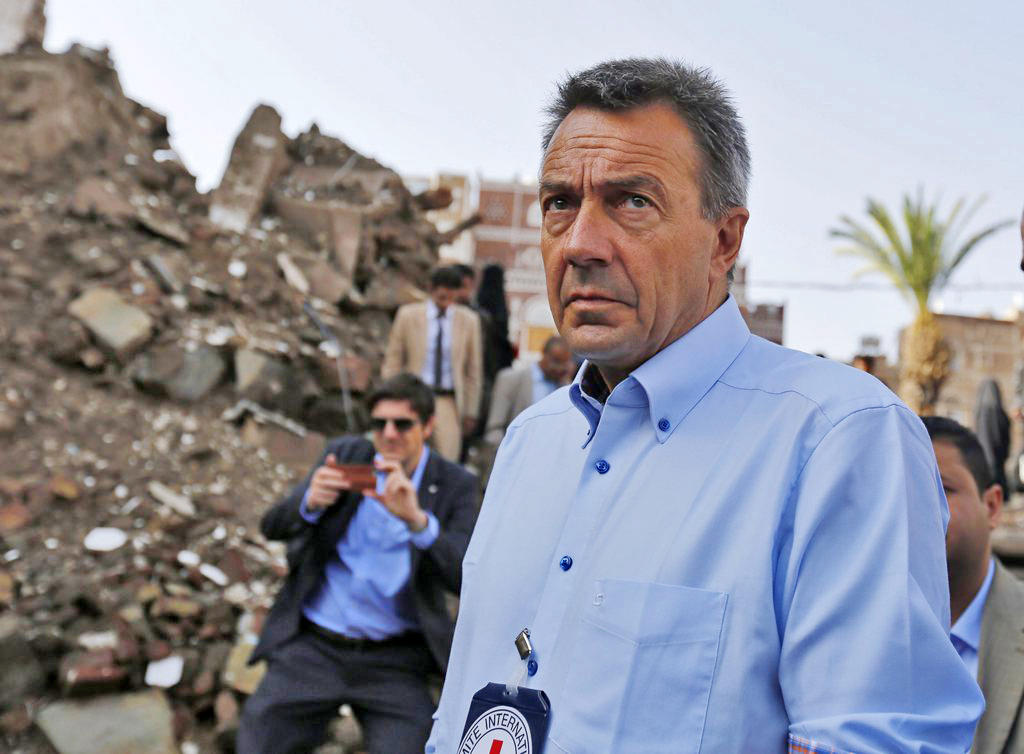
Thousands of migrants drown every year in the Mediterranean Sea, tens of thousands are locked up in Libya, war and suffering prevail in Syria and Yemen, and ethnic cleansing goes on in Myanmar.
The list of trouble spots is long for the International Committee of the Red Cross (ICRC), which is active in over 80 countries. In an interview with swissinfo.ch, ICRC President Peter Maurer looks back at 2017, and dares a glimpse into 2018.
swissinfo.ch: Was 2017 a particularly bad year for the ICRC?
Peter Maurer: No. The situation did not escalate in 2017, however, it did not ease either. It’s the development of the past five years that causes reason for concern. Wars are extremely cruel, they violate international humanitarian law and are increasingly waged in cities. Aleppo in Syria and Mosul in Iraq are good examples of this development. The fact that the political causes of conflicts increasingly combine with violence driven by criminals, terrorists and interethnic tensions is an especially explosive mix.
swissinfo.ch: How has this deteriorating situation emerged over the past five years?
P.M.: We have found that conflicts have become more protracted and the number of displaced people has increased, whether within the country of conflict or beyond its borders. Social security systems have crumbled; education, health, water supply and economies have deteriorated and middle-income countries have started to slip into the crisis and are faced with violence. The modest economic and social progress achieved between 2000 and 2010 is slowly disappearing.
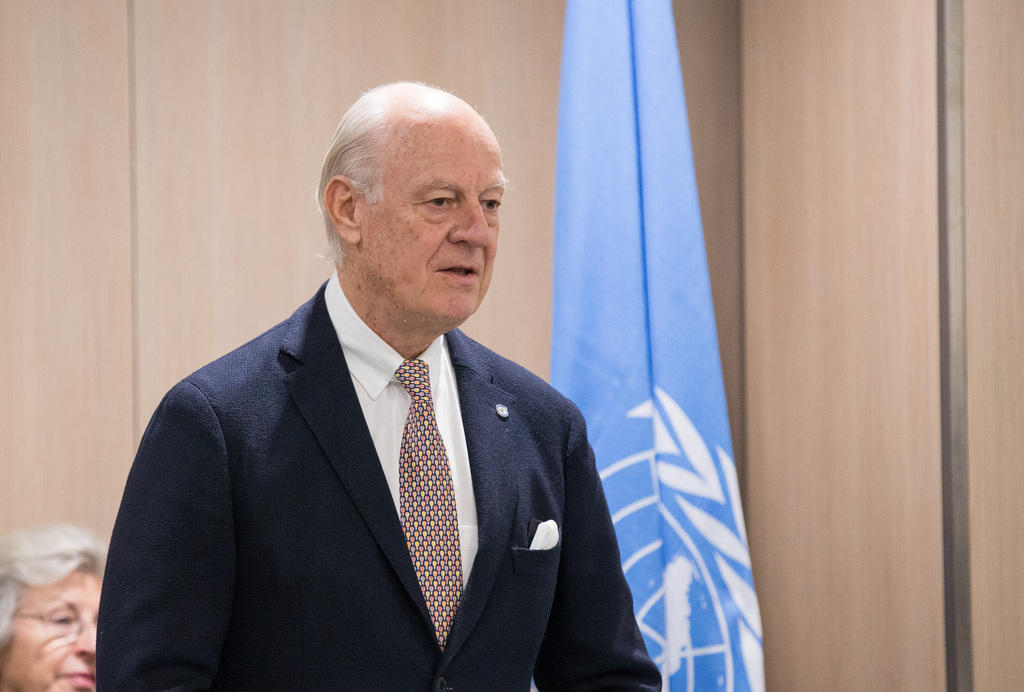
More
Syria: what will it take to make peace?
swissinfo.ch: All this does not bode well. Does the ICRC see a silver lining?
P.M.: Yes. I don’t want to join the ‘end of year cacophony’ that only looks at the negative aspects. The fact that we can provide aid in all these complex contexts is positive. Despite everything, we have been able to create spaces where international humanitarian law is observed. Specifically, the conflict in Columbia has taken a positive turn. This proves that political will can get a country back on track, even if it does not solve the conflict within a few days.
swissinfo.ch: The so-called Islamic State has lost ground in Syria as well as in Iraq. To what extent is this positive news?
P.M.: The frontlines in IS-controlled areas have obviously shifted. However, experience has shown that once a non-state group such as IS has been forced out of a territory without finding a solution to the core problem, these groups appear elsewhere. We have seen this in the Philippines.
swissinfo.ch: This means that the loss of territory does not necessarily lead to a more stable situation.
P.M.: No, we are far from it. Even though the frontlines in Syria are no longer as they were at the beginning of the year, the situation has deteriorated for the population. On the one hand, violence and displacement continue, while on the other the displaced return to regions that have been stabilised. This also puts more pressure on the ICRC.
swissinfo.ch: Looking at 2018, does the situation in the Middle East worry you?
P.M.: The Middle East will certainly keep us busy. There haven’t been any real peace efforts by the big and regional powers. Now, it seems as if the conflict is exacerbating or even expanding. Just look at Lebanon.
What will also keep us busy next year is the lack of respect for international humanitarian law, the lack of security for our humanitarian workers as well as the lack of access to the affected populations and prisoners.
swissinfo.ch: What about access to the migrants who are being kept in so-called refugee centres in northern Lebanon?
P.M.: The ICRC only has restricted access to these centres, and we are still a long way from being able to pay effective visits to the transit camps. No doubt that this will be one of our big challenges in 2018.
swissinfo.ch: The way Europe has treated the people who have crossed the Mediterranean to come here has been at the centre of many discussions. Your attitude is clear: Europe’s single-minded policy of closing its borders is not going to solve the problem.
P.M.: I am not criticizing European countries for wanting to protect their borders and control migration. However, it doesn’t make sense for European governments to close their borders without thinking about the immediate humanitarian consequences of such a decision.
swissinfo.ch: What would you suggest European governments do instead?
P.M.: The migration summit which took place in Bern in mid-November showed that it makes absolute sense for humanitarian organisations as well as interior, foreign and security ministers to come together and talk. Such discussions often bring to the fore the need for different tools. There is no doubt that control is important. But we also need to invest in the troubled regions to give the people a dignified life in their own countries.
We should also give them the opportunity of controlled and legal work migration. It’s all about giving young people perspectives. The governments, however, should also think about new protection regimes. As soon as people in need of protection no longer fit the category of refugees, it is up to the national governments to create new categories to protect these people temporarily.

In compliance with the JTI standards
More: SWI swissinfo.ch certified by the Journalism Trust Initiative



















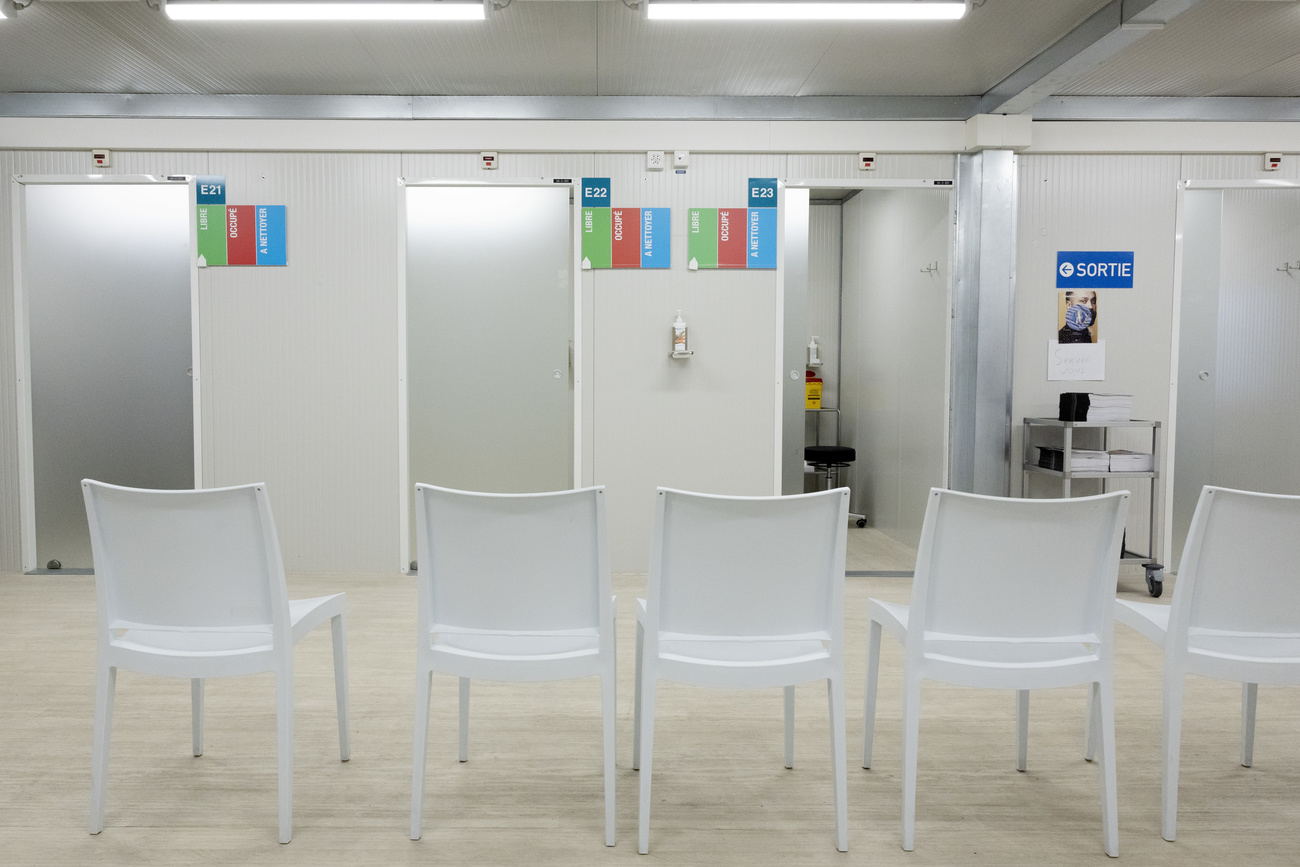


















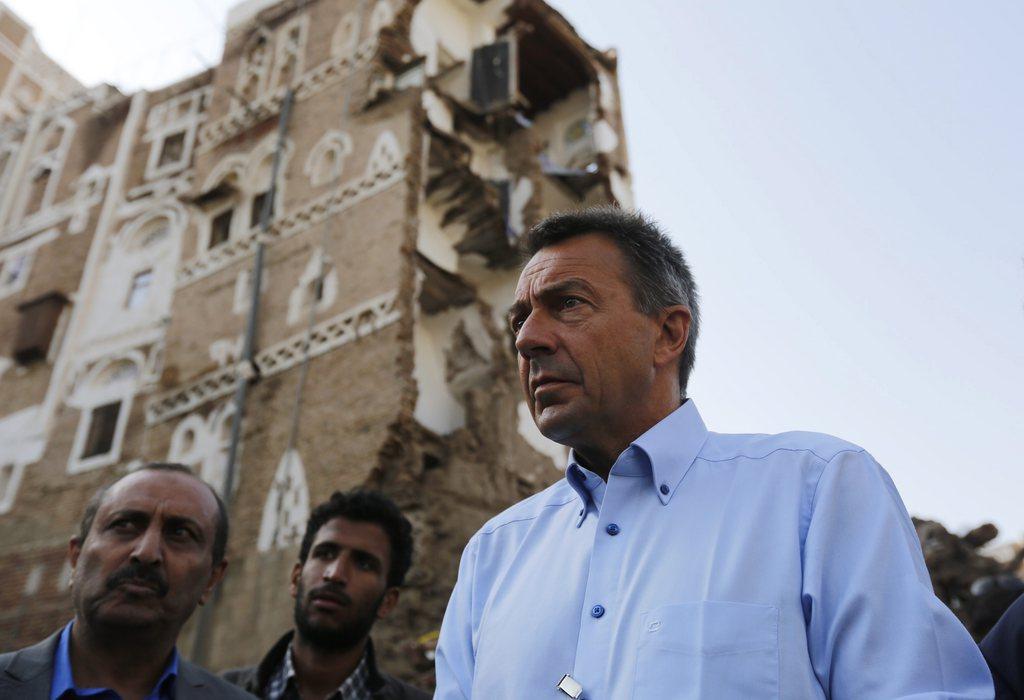

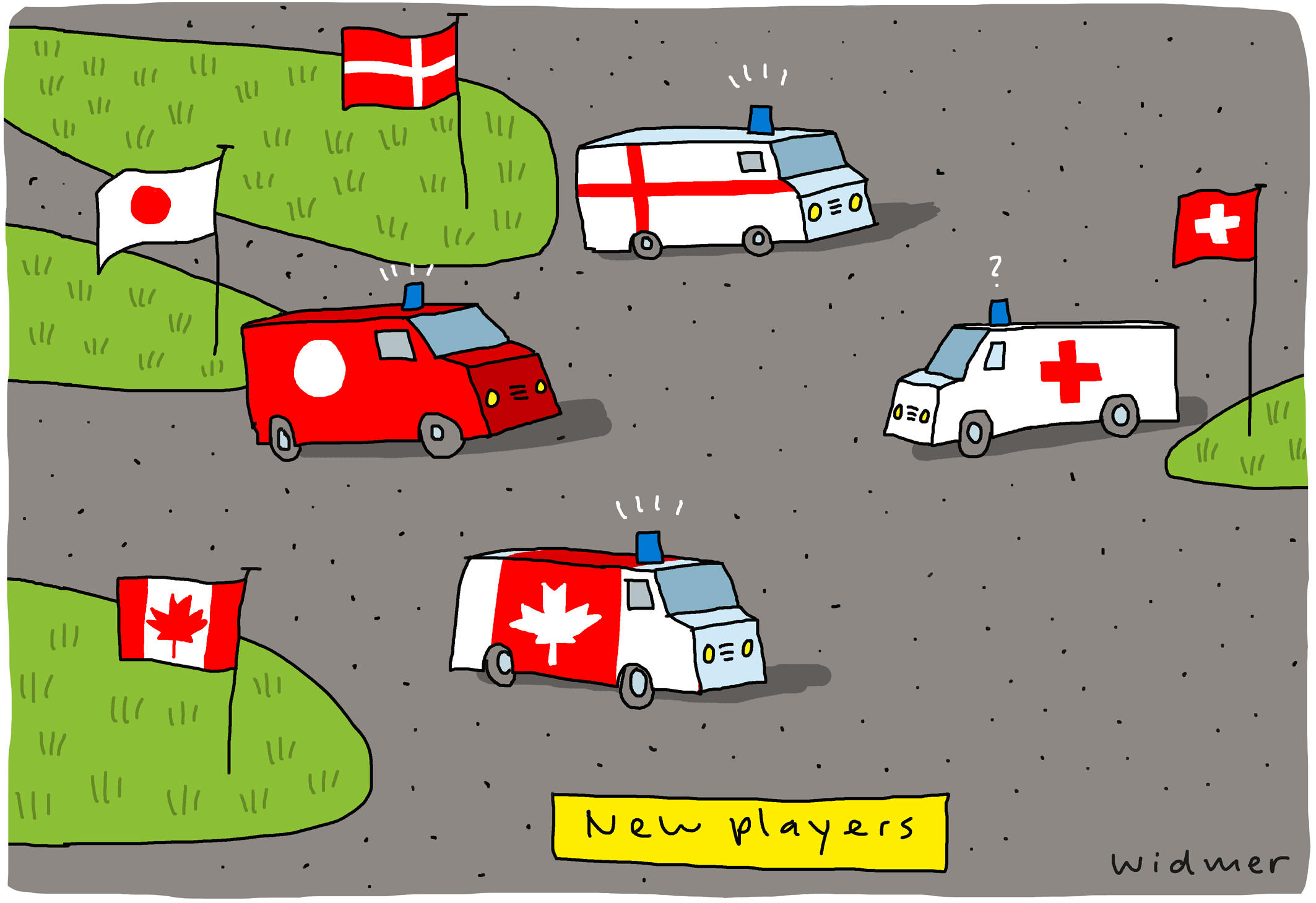
You can find an overview of ongoing debates with our journalists here . Please join us!
If you want to start a conversation about a topic raised in this article or want to report factual errors, email us at english@swissinfo.ch.